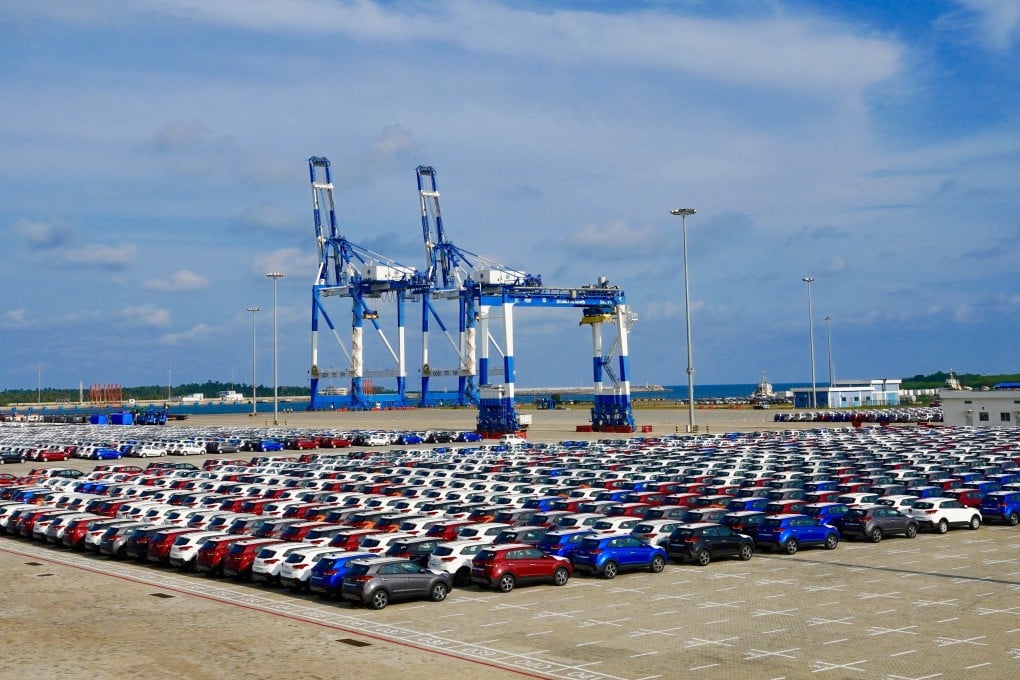China to push ahead with Hambantota port project amid reports of Sri Lanka having second thoughts
- In a phone call between foreign ministers, Wang Yi said cooperation would turn Hambantota and Colombo ports into ‘twin engines’
- Sri Lanka scrapped a separate deal with India and Japan to develop a deep-sea terminal at Colombo port

Beijing will push forward with a plan to develop Hambantota port, China’s Foreign Minister Wang Yi said in a phone call with his Sri Lankan counterpart amid reports that Colombo was seeking to renegotiate the agreement.
In the call with Sri Lankan Foreign Minister Dinesh Gunawardena on Wednesday, Wang said both countries would continue to cooperate to turn the Hambantota and Colombo ports into “the twin engines” of Sri Lanka’s industrial development and economic growth, according to a Chinese foreign ministry statement.
The call came after reports suggesting the South Asian nation was reconsidering the deal.
Gunawardena added to uncertainty over the deal on Saturday, telling the same newspaper that “the previous government made a mistake on the Hambantota port deal when they cancelled the lease and gave it on a longer period of 99 years plus another 99 years once the first term ends”.